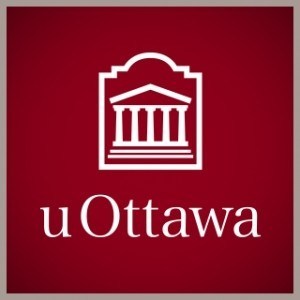Photos of university / #queensuniversity
The Bachelor of Science in Biomedical and Molecular Sciences at Queen's University offers a comprehensive and interdisciplinary education designed to prepare students for careers in healthcare, biomedical research, pharmaceuticals, and related fields. This program provides students with a solid foundation in the core principles of biology, chemistry, and molecular sciences, along with specialized courses that focus on human health, disease mechanisms, and molecular techniques. Throughout the program, students gain hands-on laboratory experience, critical thinking skills, and an understanding of the latest advancements in biomedical research. The curriculum integrates coursework in biochemistry, genetics, microbiology, physiology, and pharmacology, fostering a holistic understanding of the biological processes underlying health and disease. Additionally, opportunities for research projects and internships enable students to apply their knowledge in real-world settings, collaborate with experts, and develop essential professional skills. The program also emphasizes ethical considerations, communication skills, and interdisciplinary collaboration, preparing graduates to excel in various biomedical fields or pursue graduate studies. With access to state-of-the-art facilities and a vibrant academic community, students are encouraged to engage in innovative research and explore evolving healthcare challenges. Graduates of this program are well-equipped to contribute to advancing medical science, improve patient outcomes, and participate in cutting-edge research initiatives. Whether students aim to enter the healthcare industry, specialize further in biomedical sciences, or pursue graduate studies, the Queen’s University Bachelor of Science in Biomedical and Molecular Sciences provides a rigorous, supportive environment to achieve their academic and professional goals.
- Introduction to Animal Care.
- Ph.D. students must develop a thesis proposal within the first two terms of enrolment that reviews the literature and demonstrates the ability to design, conduct, and evaluate experiments and the data that arise from them. This can be in the format of a powerpoint presentation given during the first mandatory Thesis Advisory Committee meeting. As well, this information can also be contained in a written document prepared by the student prior to the committee meeting. If a student enters the PhD Program via a mini-MSc transfer, then the PhD proposal requirement will be waived.
- Comprehensive Exam
- All Ph.D. students must give an exit seminar prior to their final defence
- Annual committee meetings
- Oral and written defence
Requirements
- Please note that in order for your application to be deemed complete two references are required.
- For the research based MSc/PhD program we recommend you make initial communication with a faculty member in your area of interest/expertise prior to beginning the application process to determine whether that faculty member will be accepting students for the upcoming academic cycle. Students considering graduate studies are encouraged to begin a dialogue with a potential supervisor early in the admission cycle.
- For international students, if required, a TOEFL total score of at least 600 (paperbased) or TOEFL iBT minimum scores of: writing (24/30); speaking (22/30); reading (22/30); listening (20/30), for a total of 88/120. Applicants must have the minimum score in each test as well as the minimum overall score.
- Master's degree
- All official academic transcripts must be sent to the attention of theGraduate Assistant.
Scholarships
- Thesis based graduate students enrolled in the DBMS graduate program will receive funding packages to assist with living expenses and coverage of tuition: PhD - $21,000 minimum stipend.
- Queen’s Graduate Awards (QGA)
- Graduate Entrance Tuition Awards (GETA)
- International Tuition Awards (ITAs)
- Conference Travel Awards
- R.S. McLaughlin and Franklin and Helene Bracken Fellowships
- Ontario Graduate Scholarships
- Master’s Harmonized Tri-Council Awards – CIHR, NSERC & SSHRC
- Teaching Assistantships
The Bachelor of Science in Biomedical and Molecular Sciences at Queen's University is a comprehensive undergraduate program designed to provide students with a solid foundation in the fundamental principles of biology, chemistry, and health sciences. This program emphasizes understanding the molecular mechanisms underlying health and disease, equipping graduates with the knowledge and skills necessary for careers in healthcare, research, and biotechnology industries. Students explore diverse topics such as cell biology, genetics, biochemistry, pharmacology, and microbiology, often engaging in laboratory work to develop practical skills. The curriculum typically includes coursework in human anatomy and physiology, molecular genetics, and biomedical ethics, ensuring a well-rounded education. In addition to core science courses, students may have opportunities for research projects, internships, and collaborative work with faculty members involved in cutting-edge biomedical research. The program is designed to foster critical thinking, problem-solving abilities, and laboratory competence, preparing graduates for advanced studies or professional roles in medical laboratories, pharmaceutical companies, research institutes, and healthcare settings. Queen's University supports students with state-of-the-art facilities, dedicated faculty, and a vibrant academic community that encourages innovation and inquiry. The program also emphasizes the importance of communication skills and ethical considerations in biomedical sciences, acknowledging their relevance in professional practice. Students are encouraged to participate in extracurricular activities, seminars, and conferences to expand their understanding of current advancements in biomedical research. Graduates of the Biomedical and Molecular Sciences program are well-positioned to pursue postgraduate education, including Master's and Doctoral degrees, or to enter the workforce directly in roles such as research assistants, laboratory technologists, or biomedical sales representatives. The program aims to cultivate a passion for scientific discovery and a commitment to improving human health through technological and scientific advancements.




